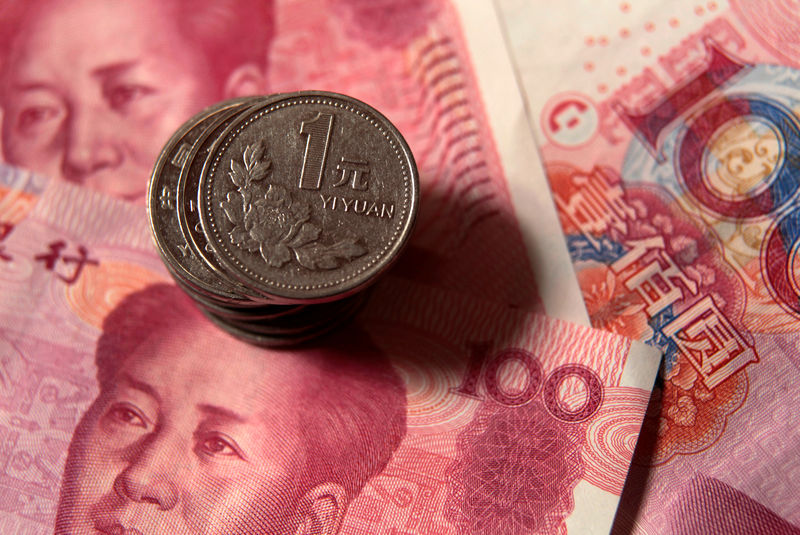 © Reuters. PBOC Has Scope to Cut Rates by Up to 50 Bps, Ex-Adviser Says
© Reuters. PBOC Has Scope to Cut Rates by Up to 50 Bps, Ex-Adviser Says
(Bloomberg) -- China’s central bank has space to cut its main interest rates by as much as 50 basis points over the next year if repeated Covid outbreaks continue to drag on the economy, according to a former adviser at the regulator.
Li Daokui said the People’s Bank of China can lower rates through the middle of 2023 as needed to alleviate corporate debt. The central bank shocked last week with a 10 basis-point cut to key rates as a property crisis and a stop-start reopening under Covid Zero deepened the economy’s slowdown.
Further cuts would be made possible because of the country’s strong trade surplus and capital controls that will support the yuan and ease capital outflow pressure, said Li, a former member of the PBOC’s monetary policy committee, who’s now a professor at Tsinghua University.
Li discussed his views in a recent interview, which has been lightly edited here for clarity:
What are your thoughts and suggestions for monetary policy after last week’s surprise rate cut?
China still has room to lower interest rates because there is a certain degree of isolation between China’s financial system and that of the US. Funds can’t flow completely freely between China and the US. More importantly, China’s exports have been strong recently. There’s also little outbound traveling due to Covid controls, which is beneficial to the foreign exchange balance of payments.
All of these factors help ensure that cutting interest rates further won’t lead to a drastic depreciation of the yuan. They also enable China’s monetary policy to be more independent from that of the US.
China’s monetary policy was more dependent on the US a decade ago. Increased monetary policy independence over the past decade is a global phenomenon that not just applies to China, and global currencies are no longer so closely linked to the US dollar. There are many reasons behind this, and a fundamental one is that companies in many countries have started to borrow in the international market in their local currency.
How much room is there for further rate cuts?
This will depend on the Covid situation. If outbreaks gradually improve in the second half of the year and next year, there will be less need for rate cuts as the economy can recover on its own. But if the Covid resurgence comes back strongly, then I’m afraid the central bank will need to cut interest rates by another one or two rounds.
I think there’s still room for 30-to-50 basis points of interest rate cuts in total by the end of the first half of next year.
Interbank liquidity is piling up while consumer and corporate borrowing demand remains weak. Will rate cuts solve the problem?
Rate cuts can solve the problem of corporate debt burdens. Unlike in the US, a rate cut in China will lower the interest rate of all existing loans [that are pegged to the loan prime rate]. That’s equivalent to banks transferring their profits to the economy. So a rate cut would have an even stronger impact than a tax cut, which only impacts companies when they are operating and generating sales.
Rate cuts are still necessary, and will have the effect of delaying the liquidity crisis of some companies. They will also help reduce the debt burden of local governments, which have a high level of debt.
Will another 30-to-50 basis points of rate cuts damage financial stability or inflate asset prices?
No. Right now the biggest impact from a rate cut will be on the currency and cross-border capital flows.
What more fiscal policy stimulus is needed?
The government should hand out consumption coupons or cash subsidies to regions that have been impacted by Covid outbreaks, in a targeted approach. It can give families consumption coupons to ensure their living standards and protect their spending.
That’s the most important thing that fiscal policy needs to accomplish in the short term, in my opinion. The size of the handout doesn’t need to be massive -- an amount around 100 billion yuan ($14.6 billion) will already have a very significant impact.
©2022 Bloomberg L.P.

